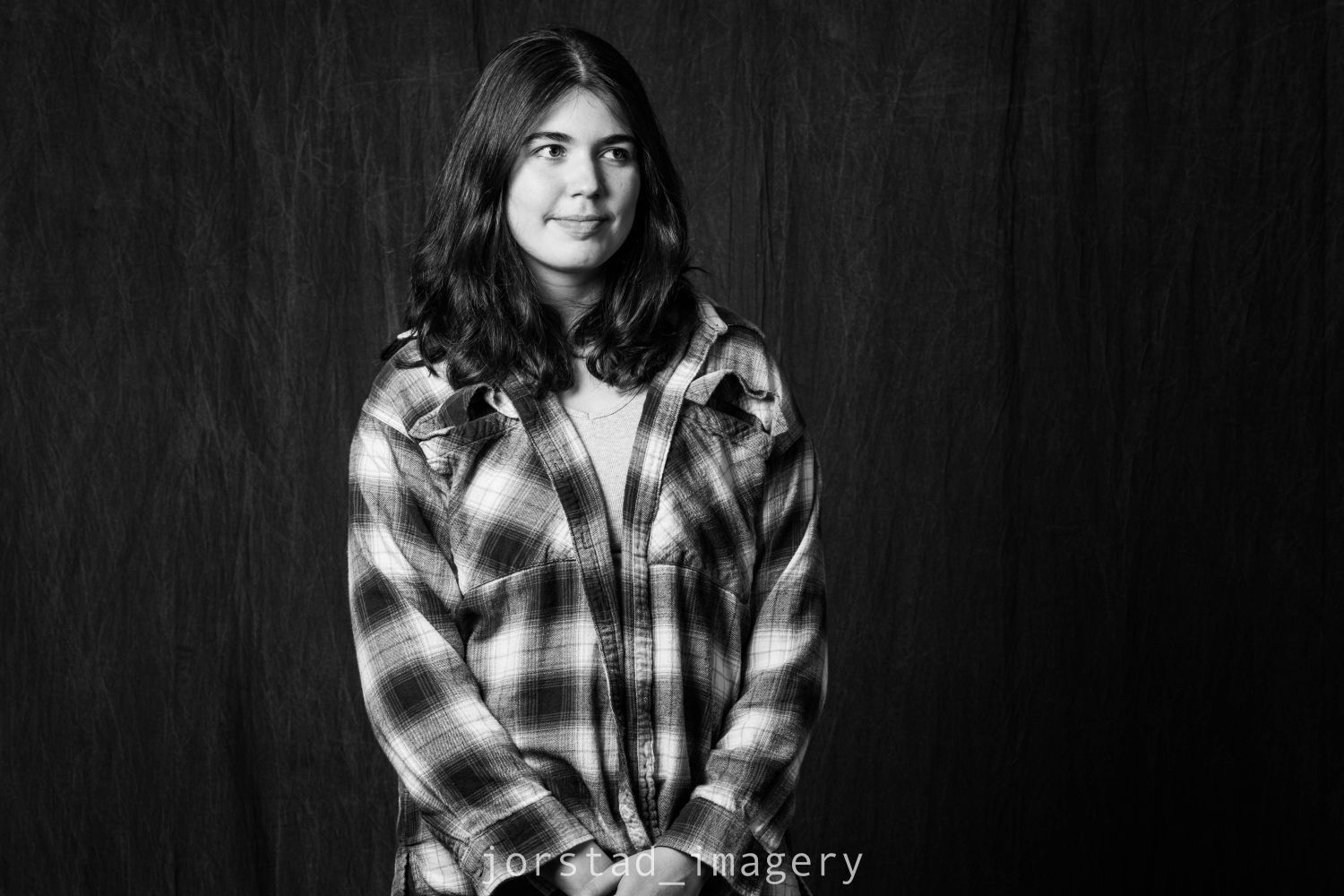We Are America
Understood
By Allison

Irondequoit High School, Rochester, New York
Throughout my life, I’ve never fit neatly into a box. I celebrate Christmas and Hanukkah, but I am not religious at all; I’m Jewish ethnically, but not religiously. Growing up, I was never aware of antisemitism, but I always had a clear understanding of my family’s Jewish culture on my mother’s side.
When I was younger, I remember my mom saying that she never celebrated Christmas as a child, and I noticed that my grandma on my mom’s side didn’t really celebrate holidays religiously at all. Celebrating Christmas with my grandma was more of a casual affair, with Wegmans submarine sandwiches and a few gifts about a week before Christmas Day, so holidays were a bit different with the Jewish side of my family. I never felt different than the other kids growing up, but I caught on to a few Yiddish words my grandma would toss around, like “schmutz” or “schwarz.” It wasn’t until 6th grade that I really contemplated my identity.
I can remember one time when I started to question who I was, and it started in 6th grade. At the time we were reading a book about a Jewish girl named Chaya who finds herself in the middle of the Holocaust, reliving the experiences of her ancestors. Everyone in my class, including my teacher, pronounced the Yiddish and Hebrew words incorrectly, but I never corrected anyone. The one time I corrected my teacher for mispronouncing l’chaim, I felt embarrassed because everyone just went silent and stared at me. The teacher asked how I knew how to pronounce it, and I responded that I was Jewish. I felt like I had been hiding my culture from everyone around me, and I realized that I should’ve spoken up for myself sooner. After that happened, someone in the class asked me, “What’s your religion?” I responded that I didn’t have a religion, but that didn’t seem to satisfy them, and they continued on to say, “But you’re Jewish.” This made me reflect more on who I was and the societal ignorance of other cultures. I realized that people legitimately did not know that being Jewish is an ethnicity and not just a religion. Somehow, I gained confidence and awareness of who I was in that moment, and I started to think about my culture. Before this, I was hiding myself and this is the moment when I started to really step out of my shell.
Empowered, I began speaking up for people like me. As I continued on to 8th grade, people would ask me, “Do you speak Jewish?” and I would have to explain to them that there is no language called Jewish; there is Hebrew or Yiddish, and I don’t speak either language. Even other Jewish kids would assume that I celebrated all the Jewish holidays like Rosh Hashanah or Yom Kippur, but I don’t.
So, a few weeks ago, I was just sitting on the couch with my mom, and we were discussing antisemitism and recent antisemitic jokes that we had heard. I wondered if American society today is both ignorant and at the same time hyper-aware of other cultures, that in today’s world not everybody understands cultures different from their own. In the act of trying to defend other ethnicities and cultures, we ignore much of what makes those cultures beautiful because the only people that can speak for cultures are those who truly understand them. So, how should we respond when someone misunderstands someone else’s culture? If we don’t respond, are we bad people for it? Shouldn’t we stop and think before we make these decisions?
© Allison. All rights reserved. If you are interested in quoting this story, contact the national team and we can put you in touch with the author’s teacher.